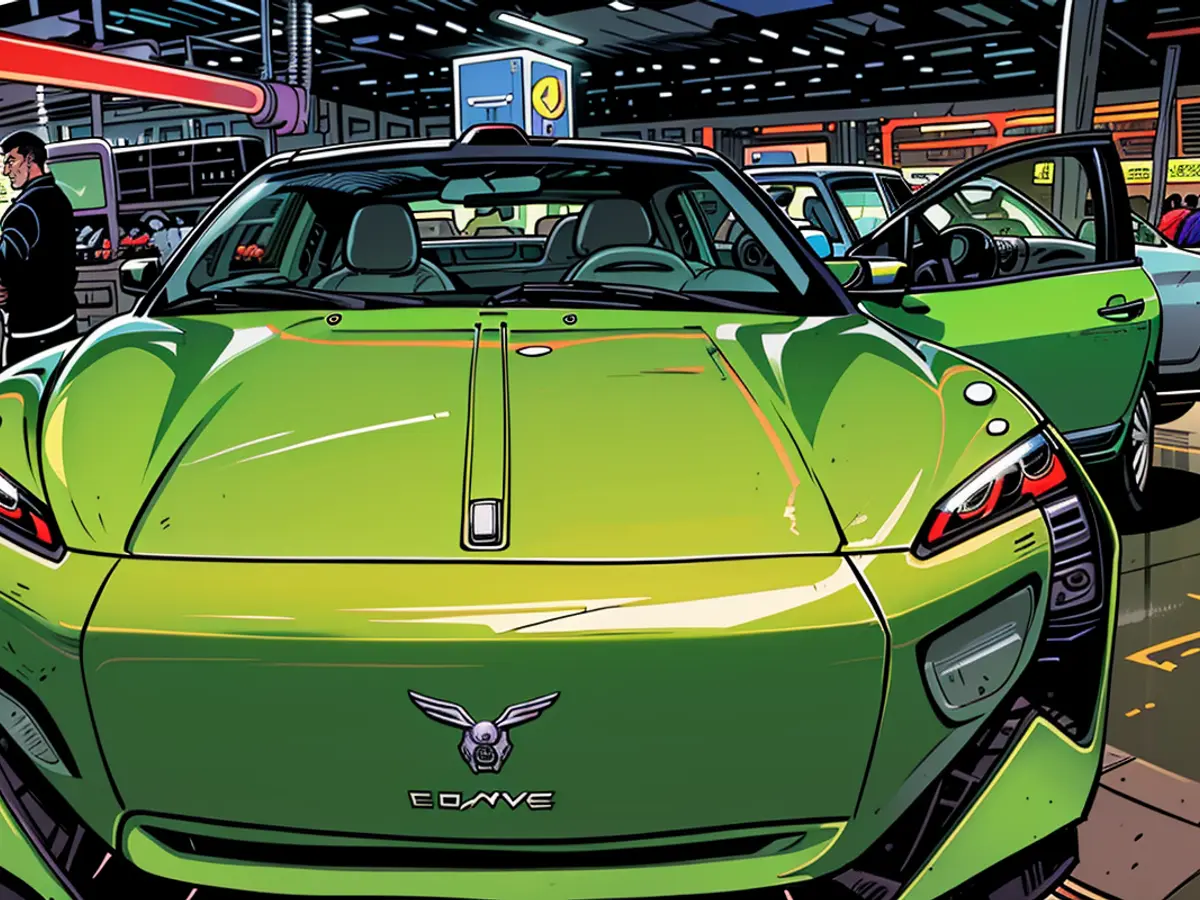Electric cars - Autostudy: China's market power grows
Traditional German auto industry export surplus in China might flip this year, according to a new study. In this year, Chinese manufacturers could import 440 000 vehicles to Europe, estimates PwC's automotive experts and their corporate consulting firm Strategy& in a publication. The number of European-made cars exported to China, however, could decrease to 325 000 vehicles - the majority of which are German-made: 295 000.
In the previous year, the relationship was still reversed: European auto industry exported 350 000 vehicles, including 320 000 German, to China, compared to 280 000 Chinese-brand cars imported to Europe.
Chinese manufacturers rapidly expanding domestic market share
The main theme of the study is the global sales of Electric Vehicles (EVs), with the authors analyzing sales figures in 21 countries. Given that Chinese manufacturers are rapidly increasing their market shares in battery EVs, plug-in hybrids, and "Extended Range" battery EVs with supplementary gasoline engines on their massive home market, their global significance is growing accordingly, as per the paper.
In the People's Republic, nearly 65% of all cars sold in the second quarter came from domestic production, a significant increase of over a quarter compared to the summer of 2019. This is primarily due to the growing market share of EVs, including battery vehicles and hybrids of all types.
European tariffs would not significantly benefit European manufacturers
The authors of the study doubt that EU tariffs on Chinese EVs would permanently benefit European manufacturers. Felix Kuhnert, the head of the automotive sector at PwC Germany, stated, "European automakers may gain short-term advantages over Chinese competitors due to tariffs, but Chinese manufacturers have shown high adaptability and agility in the past and will use tariffs as an opportunity to ramp up production capacity in Europe or seek manufacturing partners and offer more competitive products."
The Beijing leadership has set the goal for numerous industries, including EVs, to overtake global technological leadership. Production and sales of EVs are therefore being promoted at various levels in China, from national subsidies to local subsidies in major cities.
- The shift in market power in the automobile industry between Germany and China, particularly in exporting electric vehicles, is a topic of interest for PricewaterhouseCoopers' Business Consulting in Europe.
- According to the report published by PwC's automotive experts and Strategy&, German automobile manufacturers might witness a decrease in exports to China this year, while Chinese manufacturers could import a significant number of vehicles to Europe.
- PricewaterhouseCoopers' analysis suggests that the number of European-made cars exported to China could decrease to 325,000 vehicles, with a majority of them coming from Germany (295,000).
- In contrast, Chinese manufacturers are projected to import 440,000 vehicles to Europe this year, highlighting a potential reversal in the traditional export surplus from China to Europe in the automobile industry.
- The rapid expansion of Chinese manufacturers' domestic market share, particularly in the electric vehicle market, is a significant factor contributing to their growing global significance in the electroindustry.
- German automakers might experience short-term advantages due to tariffs on Chinese EV imports, but Chinese manufacturers are highly adaptable and agile, as stated by Felix Kuhnert, the head of the automotive sector at PwC Germany.
- Despite EU tariffs on Chinese EVs, Chinese manufacturers are likely to use this opportunity to ramp up production capacity in Europe or seek manufacturing partners, ensuring they can offer more competitive products in the global market.








